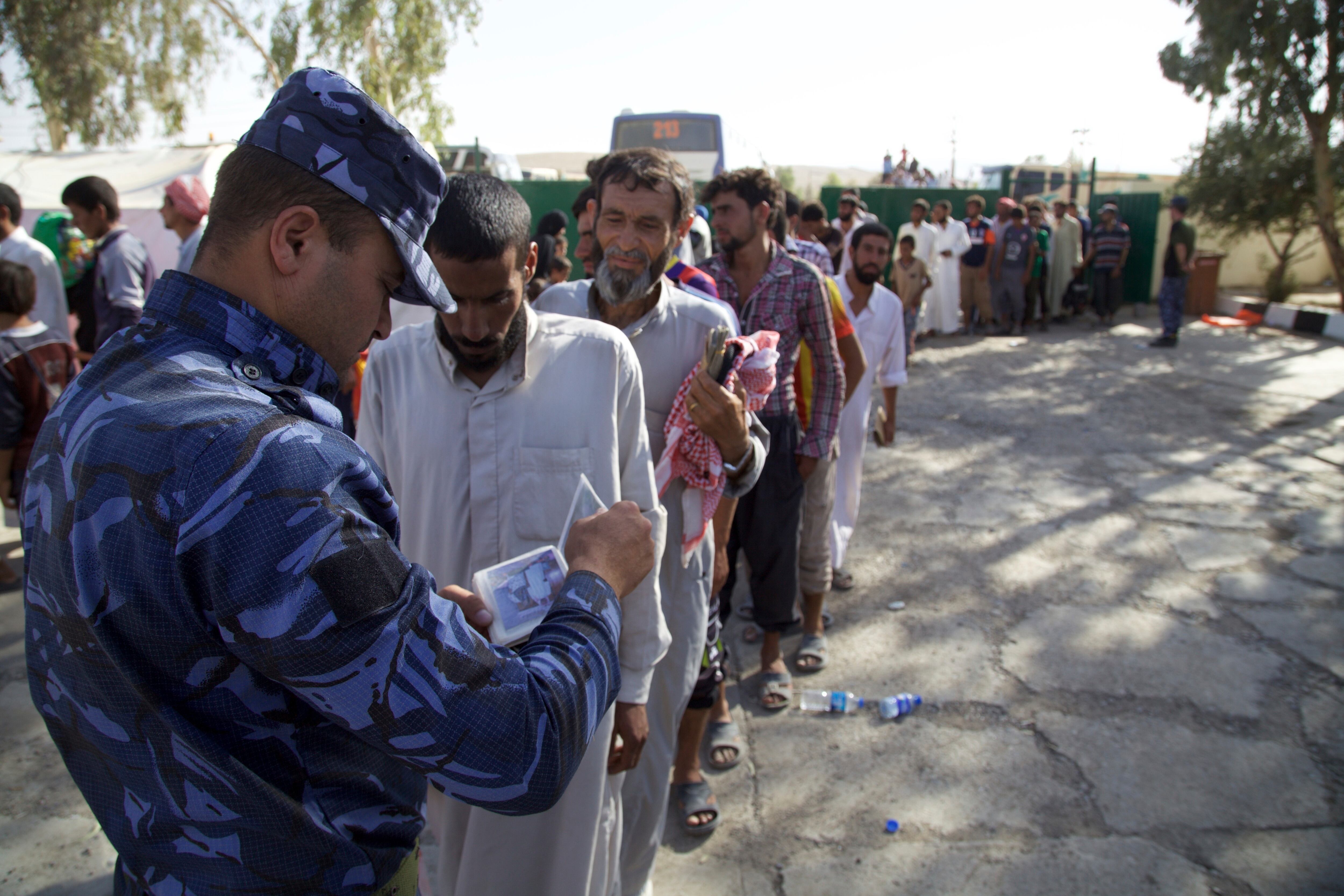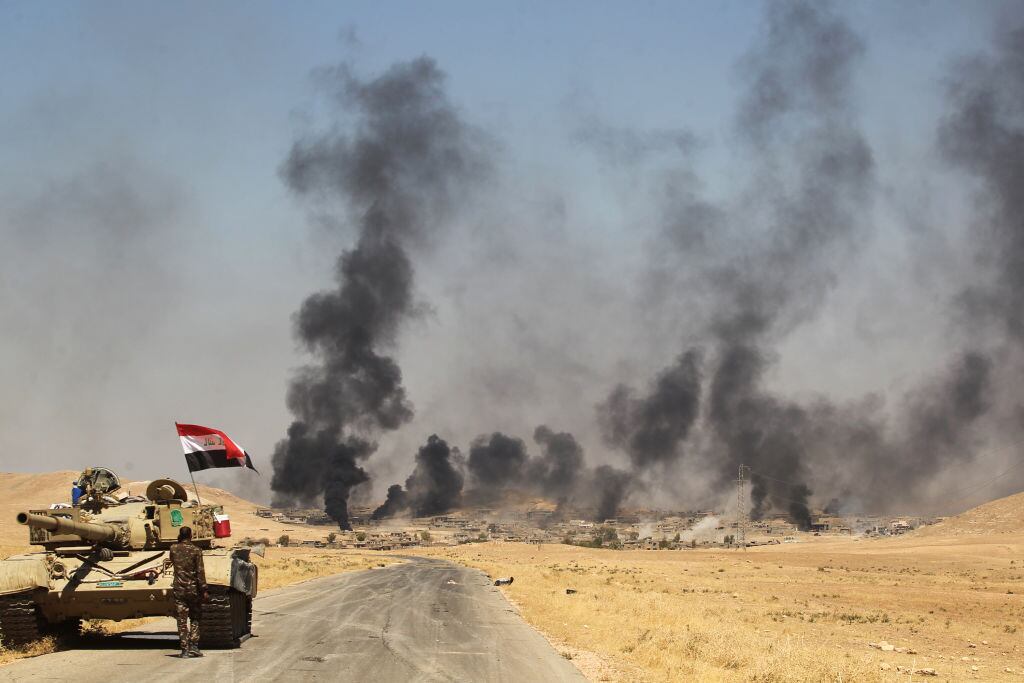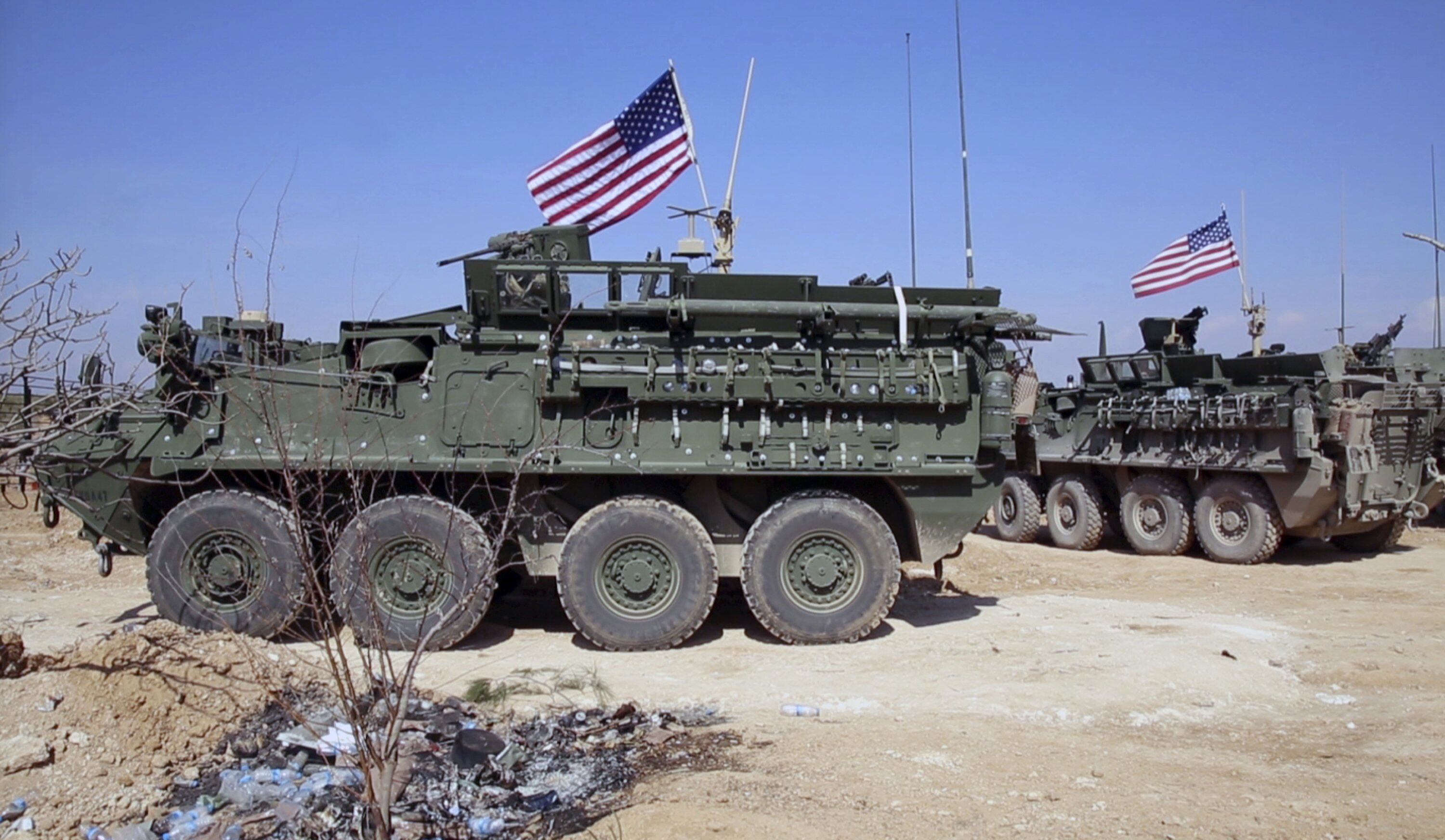BAGHDAD — The northern town of Tal Afar has been “fully liberated” from the Islamic State group, Iraq’s prime minister said Thursday, further shrinking the territory controlled by the extremists who overran nearly a third of the country three years ago.
The militants have suffered a series of major defeats in recent months, including the loss of Mosul, the second-largest city, in July.
Iraqi troops “eliminated and smashed” the militant group in al-Ayadia district, northwest of Tal Afar, where they had fled last week, Prime Minister Haider al-Abadi said in a statement.
“To Daesh criminals we say: Wherever you are we will come to liberate and you have to choose only death or surrender,” al-Abadi added, using an Arabic acronym for the group.
With the fall of Tal Afar, all of Ninevah province is “in the hands of our brave troops,” he said. The ethnically mixed province was the first to fall to the Islamic State when its militants swept across large parts of Iraq and Syria in the summer of 2014.
The group still controls a large area of eastern Syria, along the border with Iraq, as well as parts of Raqqa, the capital of the group’s self-styled caliphate, where it is battling U.S.-backed and Kurdish-led Syrian forces.
Iraqi officials often declare areas liberated before the fighting has completely ended, and the militants have been known to carry out surprise counterattacks. The Tal Afar operation began nearly two weeks ago.
The announcement on Tal Afar came a day after Jordan and Iraq reopened their only border crossing after a two-year closure. They were able to reopen it after Iraqi forces drove IS from most of the vast Anbar province in western Iraq.

Al-Abadi vowed to retake all areas still under ISIS control. In Iraq, they are now largely confined to the northern town of Hawija and a handful of others — Qaim, Rawa and Ana — near the Syrian border.
In a separate statement, the Iraqi military confirmed that their next target is Hawija, but did not elaborate.
Iraqi state TV interrupted its regular programs and played national songs, showing a live feed from Tal Afar, where soldiers danced and celebrated the victory.
In his announcement, al-Abadi alluded to an agreement brokered by Lebanon’s Hezbollah militant group that allowed hundreds of ISIS fighters to evacuate the Lebanon-Syria border and head toward IS-held territory in eastern Syria, near Iraq.
Iraq and the U.S.-led coalition criticized the deal, saying the extremists should be killed on the battlefield and not be allowed to regroup elsewhere.
RELATED

Al-Abadi said Iraqi forces “didn’t allow them to flee” al-Ayadia.
“That’s our firm stance against those criminals,” he added.
The coalition praised what it called a “stunning victory,” but it warned that “dangerous work remains to completely remove explosive devices, identify ISIS fighters in hiding and eliminate any remaining ISIS holdouts.” ISIS is another acronym for the militant group.
Neighboring Turkey, which has long ties to Tal Afar’s ethnic Turkmen community, welcomed the liberation of the town. But the Foreign Ministry emphasized in its statement that Iraqi security forces and residents should assume control and not “militant groups acting on their own agendas.”
It appeared to be referring to state-sanctioned, mostly Shiite Arab militias who took part in the operation to drive out ISIS, a Sunni extremist group. Turkey has previously warned against any attempt to upset the demographic balance in northern Iraq.
RELATED

Islamic State defenses in Tal Afar collapsed much more quickly than expected. After previous setbacks, however, the group has brutally underscored its resilience by launching surprise offensives to retake territory or by inspiring or orchestrating attacks in other parts of the world.
“They have been suffering massive losses for months now and seem to be disintegrating in terms of strength and the ability to strike back,” said Natasha Underhill, a terrorism expert at Nottingham Trent University.
She warned that “tackling the power of its ideology is far more significant, as it is this which inspires other groups or those home-grown groups like we have seen emerge across Europe.”
Associated Press writers Qassim Abdul-Zahra in Baghdad and Zeynep Bilginsoy in Istanbul contributed to this report.





